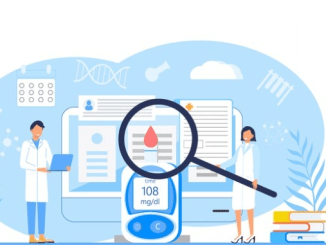
Female doctors have taken on extra – often unpaid – work during the pandemic, to the detriment of their own wellbeing and mental health, BMA research has found
CREDIT: This is an edited version of an article that originally appeared on The BMJ
The BMA has been regularly surveying doctors across the UK since April last year in order to understand their experiences of the COVID-19 pandemic. As part of its latest survey, conducted in February, doctors were asked whether, in the past month, they had undertaken additional hours’ work, over and above their contractual requirements, as part of the response to COVID-19.
Of the 4,182 female doctors who responded to the question, 27% said they had undertaken additional hours’ unpaid work, while nine per cent said they had done additional paid work for which they were still awaiting payment. One-in-seven (15%) who took on extra work said they had felt ‘significant’ pressure to do so from their employer, and 26% said they had put significant pressure on themselves to work additional hours.
In comparison, 23% of the 3,030 men said they had taken on extra unpaid work and 7% said they were still awaiting payment for the extra work they had done. A small proportion (13% of 2,972) of male doctors said they felt significant pressure from their employer to work additional hours, and a fifth (20% of 3002) said they had put significant pressure on themselves to do so.
In a diary, written as part of the BMA’s research, one female doctor from an acute specialty wrote, ‘As the first cases started to be reported in the UK we also heard that men were dying in much higher numbers than women, and the chance of serious illness or death was higher the older they were.
‘All of our team members over the age of 50 were male. I knew that, although every extra hour at work created more risk to myself, the risk was less than that faced by my older, male colleagues. Putting myself forward to work in the red zones, and to take on additional clinical work, wasn’t something I debated.’
In April 2020, 31% of 7,633 responding women reported that they were experiencing depression, anxiety, stress, burnout, or emotional distress related to their work compared with 25% of 6,003 responding men. Ten months later, in February this year, these figure had risen to 44% (of 4,495) for female doctors and 35% (of 3,236) for male doctors.
Commenting on the research findings, chief officer at the BMA Helena McKeown said the pressure that women were putting on themselves at the expense of their own health was shocking. “The BMA is concerned about the current, medium and long term effects on the workforce of working so hard with so little respite, and experiences including caring for many dying and critically ill patients, moral injury, and putting themselves at risk,” she said.
“It is vital that staff can access occupational health assessments of their wellbeing with suitably-adapted working patterns and psychological support, now and for as long as it’s needed.
“Supporting the wellbeing of the health workforce must be a top priority in the long term.”


Be the first to comment